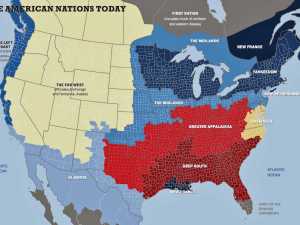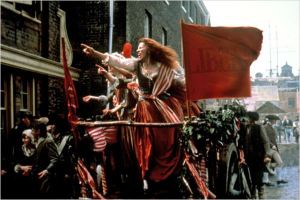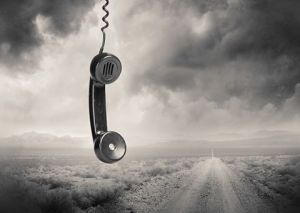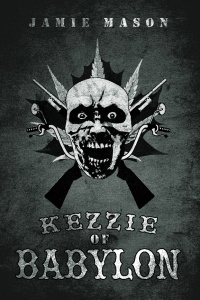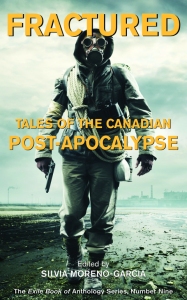Readers often ask me about my creative process, so here’s a general snapshot of how I write.
I’m a slow writer compared to most of my peers. I’m not sure I could crank out a book in three months, and if I did that it would be unreadable. I know authors who crank out four good books a year. I’ll never have that sort of output.
It all begins with an idea
I tend to marinate on several ideas at once, before deciding what I’m going to write. I’ll make notes on legal pads, bar napkins, and the back of company notebooks. Once I’ve got a general idea of the topic, then I move onto characters. With Objects of Wrath,
I began with the idea of a family struggling to survive the next world war.
I sketch the main character first, and then surround him with the surrounding cast. Often at this point, I don’t know enough about the story to fill in the details, but I like to have a general idea.
Next comes the broad outline. This is only a few pages long, with enough space in there to add things. I use a legal pad, and I draw a diagram of a suspension bridge. The high points are the big scenes in the middle and the climax, and the lines in between are the rising action, the building tension. Sometimes I’ll actually use one full page for this diagram, and divide the rising action into specific chapter ideas. The point of this diagram is that I want to have a general idea of what I’m writing towards. It sounds simplistic because it is. But it is very helpful to me in terms of pacing.
The next thing I do is write a first chapter, just to get a feel for the characters. So far, a surprisingly big chunk of my first chapters have made it to the final manuscript. I go back later on and move things around, and work especially hard on the first fifty pages, but the bones are there.
Storytelling
I tend to plot out a few chapters ahead of time as I’m writing. For me this is the best part of writing books. I have notebooks crammed with ideas, where I just let things rip. “What if…” and then I’ll try that idea out, often in paragraph form. One idea leads to another, and I’ll end up with various branching plot lines.
When I’m in this mode, I can write unfettered, and it is where I probably do my best work. It’s here that characters start to misbehave in good ways. A minor character becomes important, while a character that I’d planned on keeping alive has to die. I’ll stumble upon an idea that lights me up, and spend a few hours writing one paragraph working to get it right.
I alternate back and forth when I’m writing a novel, between storytelling mode, and the actual pounding out the words at the keyboard.
Here are a few random examples of paragraphs or sentences I worked very hard on.
From Objects of Wrath: http://www.amazon.com/Objects-Wrath-Volume-Sean-Smith/dp/1618682245
“I had seen Gunny in action, had been trained by him, and knew how quick and deadly he was, but Chilli was an artist in his prime form, painting death with deft strokes. With perfect economy of motion he dispatched a seemingly unending supply of enemies in an unrivaled masterpiece of destruction. I hacked and shot behind him through the smoke, and despite the chaos, I marveled at Chilli’s artwork. His canvas was the battlefield, and he was the Rembrandt of the knife, painting darkness, not light. He was the Picasso of the blade, leaving twisted corpses in his wake, his hands and feet brushes that flicked out almost delicately, precisely, colorfully”
From Children of Wrath http://www.amazon.com/Children-Wrath-Book-Volume/dp/1618683411/ref=pd_bxgy_14_img_y
“Most of us are blessed with a moment when sunlight is gold dust, warm and glittering, and the air is clean and tastes like hope. Sometimes we pay attention, savor the sweetness and are glad of it. Too often, we realize the rareness of it too late to revel in the glory of it. Looking back, though, we know the moment. That’s the yearning and the hurt later, because the memory is not the time, it is an echo. There is no way to feel exactly that way again, you can only recall the wholeness of it, remember the preciousness. My moment was long and my soul sings with the echoes I hear, but by the time we began our assault on Dugway, my moment had already passed.”
From Tears of Abraham, coming in March 2016
“Stand up for yourself,” his father had said when Henry walked home with a bloody nose again. Henry’s old man, Tim Wilkins peered down at Henry. A tall, rangy man with a straight back, pale blue eyes, and a face worn out by life, Tim Wilkins was not prone to overt displays of affection or sympathy. But he was the center of Henry’s universe.
In Henry’s eyes then, his father was granite, solid rock, unbreakable, unchangeable, and strong in the way of a proud mountain. The lens of hope and faith filtered out the cracks and fissures, the broken blood vessels on Papa’s wind burned face, and the hurting eyes of a man eroded, but not yet completely worn smooth. Blasted by hard years, bad luck, and the love for the wrong woman, Papa remained undefeated.”
From Fate of the Fallen, my work in progress:
“Religion, Malak reasoned, would be at the heart of it. Money and power led to war between men. Religion could destroy mankind. Sometimes money and power were the religion, the worship of those things, by men who held armies on a leash. The worst of it was when money, power, and religion all combined. At the end of the day, it was always some kind of religion.”
Savoring the process
I love writing, whether it’s a song or a novel. I relish the entire process, and enjoy lingering over a passage, turning the words over, shifting things around to find a cadence and melody to the words. Some readers find this aspect of my writing a hinderence, and I understand that many folks want to read an adrenaline-driven book that’s primarily plot-driven. There’s nothing wrong with that, and I enjoy books like that sometimes. The older I get, though, the more I want some real substance to the things I read and the things I write. I love Steinbeck, Hemingway, Dickens, McCarthy, Irving and O’brien. I’ve got a long way to go before I can attain that level, but that’s what I shoot for when I sit down to tell a story.
That’s my process, that’s my story, and I’m sticking to it!



